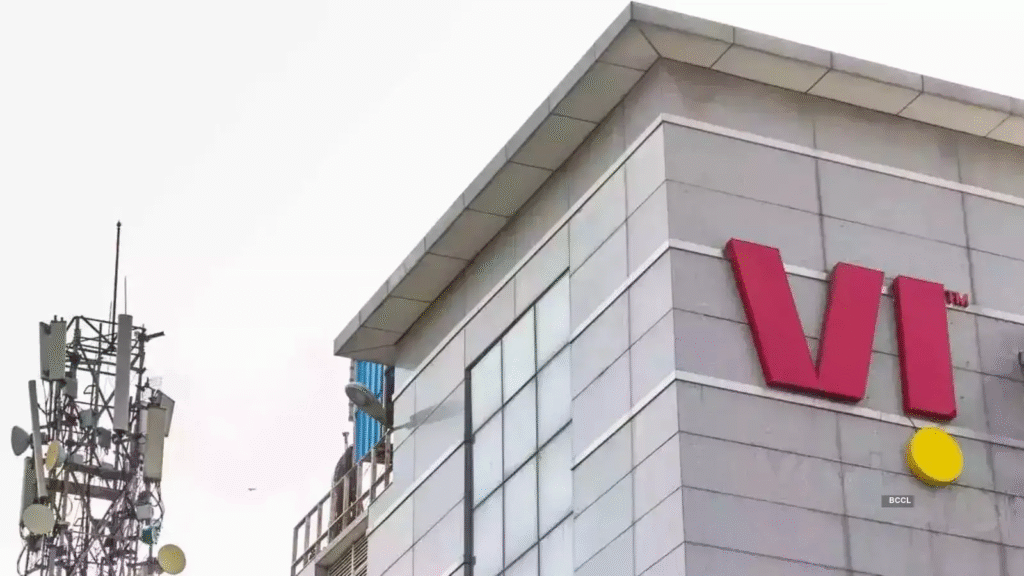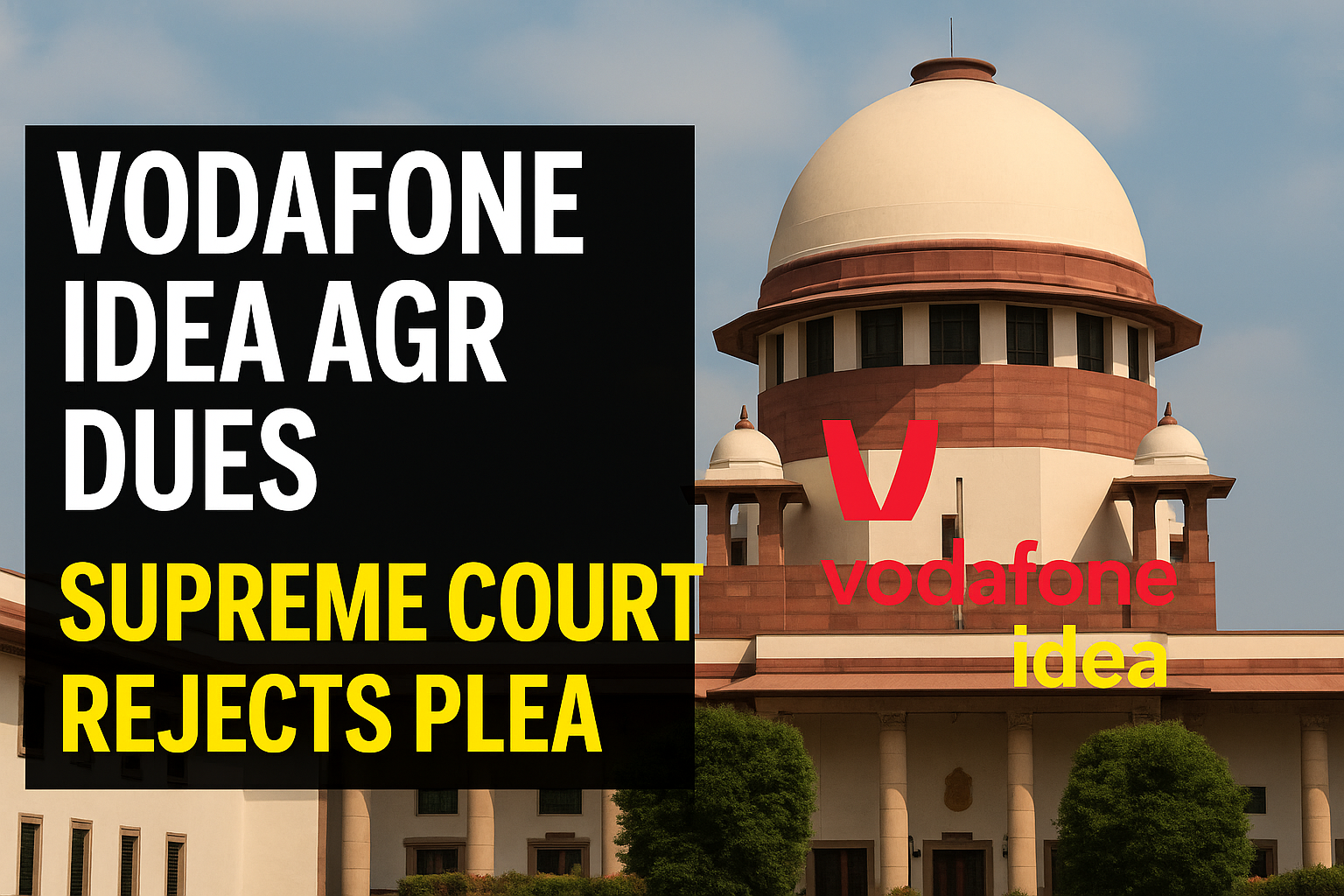
The Supreme Court of India recently delivered a pivotal verdict that has sent ripples across the Indian telecom industry. Rejecting the pleas of Bharti Airtel, Vodafone Idea, and Tata Teleservices seeking waiver or reduction of their Adjusted Gross Revenue (AGR) dues, the apex court reaffirmed the sanctity of contractual obligations and government dues. This decision underscores a watershed moment in India’s telecom saga—one that balances regulatory authority, judicial integrity, corporate accountability, and sectoral sustainability.
In this extensive analysis, we explore the multifaceted dimensions of the AGR controversy, the Supreme Court’s reasoning, the immediate and long-term impact on telecom players, government policy dynamics, investor sentiments, consumer consequences, and what this means for the future of telecommunications in India.
Understanding AGR: The Crux of the Controversy
Adjusted Gross Revenue, commonly known as AGR, is a financial metric used to calculate the amount telecom operators owe the government as license fees and spectrum usage charges. Unlike traditional gross revenue, AGR encompasses not just core telecom services income but also other revenue streams such as income from non-telecom services, dividends, and interest. This expanded definition, as clarified by the Supreme Court in 2015, dramatically increased the financial liabilities of telecom companies.
The DoT’s insistence on a broader AGR definition, coupled with retrospective application, has been a major source of dispute. The apex court’s earlier ruling confirmed that the government’s interpretation was legally sound. However, the resulting demand—running into billions of dollars—placed extraordinary financial strain on the telecom industry, especially at a time when the sector was already grappling with fierce price competition and slim profit margins.
The Supreme Court Verdict: A Firm Stand on Legal Obligations
In the recent hearing, the Supreme Court decisively turned down the requests for waiver or reduction of AGR dues filed by Bharti Airtel, Vodafone Idea, and Tata Teleservices. The court emphasized the inviolability of contracts and the necessity for telecom companies to honor their financial commitments.
This ruling reiterates the judiciary’s commitment to upholding the rule of law and contractual sanctity. The court noted that while the government’s revenue demands may appear stringent, they are backed by binding agreements and legal frameworks. The plea for leniency based on financial hardships was deemed insufficient to override these binding obligations.
By denying the pleas, the Supreme Court has sent a clear message that regulatory compliance and fiscal responsibility are non-negotiable, even for large corporations.
Impact on Vodafone Idea: Struggles Amid Financial Storm
Vodafone Idea, formed from the merger of Vodafone India and Idea Cellular in 2018, is arguably the telecom operator most affected by the AGR dues ruling. Burdened by massive debt, intense competition from rivals like Reliance Jio and Bharti Airtel, and operational challenges, Vodafone Idea has been battling to sustain viability.
The Supreme Court’s rejection of AGR dues waiver escalates financial pressures on Vodafone Idea, pushing the company to explore urgent remedies. Vodafone Idea has already initiated cost-cutting measures, network rationalization, and asset monetization efforts to generate liquidity. However, meeting the huge AGR dues alongside ongoing operational costs remains a herculean task.
Industry experts speculate that Vodafone Idea may be forced into further consolidation or seek strategic investments to survive. The government has intermittently extended relief measures, but the lack of AGR waiver curtails the company’s ability to breathe easy
Bharti Airtel’s Position: Navigating Challenges with Resilience
Bharti Airtel, India’s oldest and one of the largest telecom operators, faces its own share of challenges but exhibits relatively stronger financial health. With diversified operations including mobile services, broadband, and enterprise solutions, Airtel is better equipped to absorb the financial burden of AGR dues.
Post-verdict, Airtel reaffirmed its commitment to complying with all regulatory requirements. The company has restructured its finances and leveraged new investments to ensure timely payment of dues. While the ruling impacts Airtel, its robust subscriber base, technology leadership, and strategic vision provide a buffer.
Airtel continues to focus on 5G rollout, digital services expansion, and customer experience enhancement as pathways to future growth despite the ongoing regulatory complexities.
Tata Teleservices: The Smaller Player in the Spotlight
Tata Teleservices, while smaller than Vodafone Idea and Bharti Airtel, also faces significant consequences from the ruling. As a part of Tata Group’s telecom foray, it has been negotiating exits and asset transfers with other players like Bharti Airtel to manage AGR dues and operational viability.
The court’s verdict leaves limited room for relief, accelerating Tata Teleservices’ urgency to finalize arrangements with partners or restructure its business to mitigate AGR-related financial stress.
Government’s Dual Role: Revenue Collection vs Industry Sustainability
The Indian government is walking a tightrope—on one hand, enforcing AGR payments vital for public finances, and on the other, fostering a thriving telecom sector essential for digital India’s aspirations.
The AGR dues constitute a substantial revenue source for the government, aiding investments in infrastructure and services. Yet, the telecom sector’s health is crucial for innovation, connectivity, and economic growth.
Recent policy measures reflect this balancing act: spectrum auctions at rationalized prices, deferred payment schemes, and periodic industry consultations to align regulatory expectations with market realities.
Investor Sentiment and Market Reactions
The Supreme Court’s verdict has sent mixed signals to investors. While the enforcement of AGR dues upholds legal clarity, it also magnifies financial risks for telecom companies, especially Vodafone Idea.
Stock prices of telecom firms witnessed volatility post-verdict, reflecting concerns over cash flow strains and future profitability. Conversely, some investors appreciate the enhanced regulatory clarity and the government’s resolve to maintain fiscal discipline.
Analysts emphasize the importance of structural reforms, operational efficiencies, and consolidation to stabilize the sector and attract sustained investments.
Broader Telecom Industry Implications
The AGR dispute and its legal resolutions mark a paradigm shift in Indian telecom. The ruling sets a precedent for adherence to contractual obligations and regulatory frameworks, influencing how future disputes may be adjudicated.
Furthermore, it could accelerate industry consolidation, as smaller or financially weak players reassess their survival strategies. Mergers, acquisitions, and partnerships may become essential to achieve economies of scale and share financial burdens.
The regulatory environment’s certainty, albeit stringent, might also stimulate innovation and competitive strategies focusing on quality and customer experience.
Consumer Perspective: Challenges and Opportunities
For consumers, the immediate impact is nuanced. While financial stress on operators like Vodafone Idea may raise concerns about service quality and pricing, market competition remains intense.
Government policies emphasize consumer welfare, digital inclusion, and affordable access. Initiatives like expanding broadband penetration, enhancing rural connectivity, and promoting 5G are expected to drive benefits to end users.
Ultimately, a robust, compliant telecom industry will foster better services, wider coverage, and technological advancements.
The Role of Technology and Digital Transformation
India’s telecom landscape is evolving rapidly with the advent of 5G, Internet of Things (IoT), and digital platforms. Companies must invest in advanced technologies while managing regulatory costs.
The AGR dues verdict underscores the need for telecom players to balance financial prudence with innovation. Strategic investments in network modernization, cloud computing, and digital services are vital to sustain growth and competitiveness.
Lessons from the AGR Controversy: Regulatory and Corporate Governance
The AGR saga offers critical lessons for all stakeholders. For regulators, clear, consistent policies and transparent communication are essential to prevent prolonged disputes.
For telecom companies, proactive compliance, transparent accounting practices, and strategic financial management are non-negotiable.
The judiciary’s role in upholding law while considering practical realities is pivotal for fair and effective dispute resolution.
Future Outlook: Towards a Stable and Competitive Telecom Ecosystem
Looking ahead, India’s telecom sector stands at a crossroads. The Supreme Court’s decision crystallizes regulatory expectations but also challenges players to innovate and adapt.
The government’s continued support through policy reforms, spectrum management, and infrastructure investments will be crucial.
Telecom operators need to focus on operational efficiencies, customer-centric innovation, and sustainable business models to thrive in this demanding environment.
Conclusion: A Defining Moment and A Path Forward
The Supreme Court’s rejection of AGR waiver pleas marks a defining moment in India’s telecom journey. It reinforces legal sanctity and fiscal responsibility, shaping the sector’s future trajectory.
While challenges abound, the verdict also creates an opportunity for a more resilient, transparent, and innovative telecom ecosystem. With collaborative efforts from the government, judiciary, industry, and consumers, India’s telecom sector can realize its potential as a cornerstone of digital growth and inclusion.

